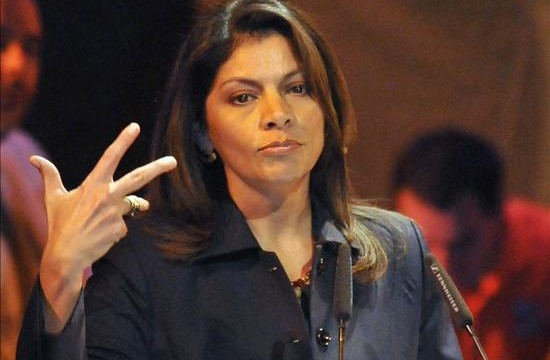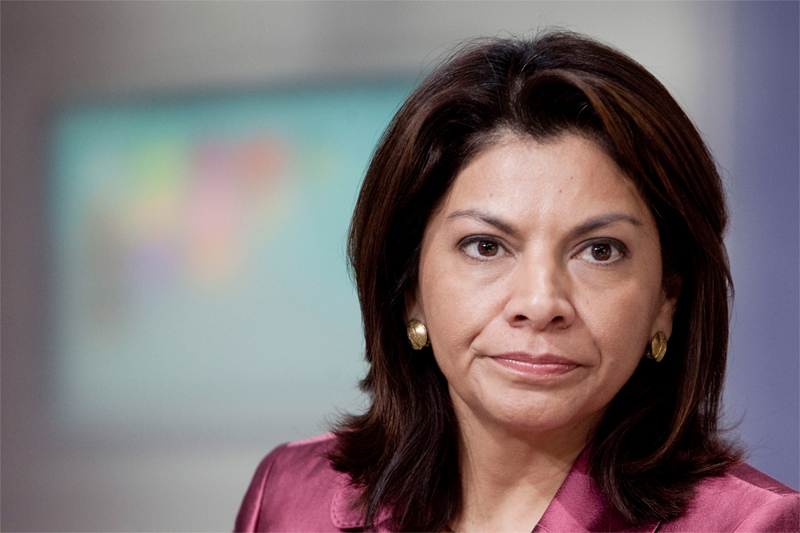Costa Rica News (Reuters) – Costa Rica’s new president, Luis Guillermo Solis, who won a landslide victory in April after campaigning against poverty and corruption, said in an interview on Friday there are no plans to open a formal investigation into his predecessor’s tenure.
 Instead, Solis said he will tell the nation what he has discovered about the government’s operations during his first 100 days in office. He took office on May 8.
Instead, Solis said he will tell the nation what he has discovered about the government’s operations during his first 100 days in office. He took office on May 8.
Solis, the centre-left academic who never before held elected office, swept into power on April 6 by tapping into public anger at rising inequality and government corruption scandals. The address to Costa Rica’s roughly 4 million citizens should occur around Aug. 15.
The incumbent Laura Chinchilla sparked outrage by accepting flights on a private jet to Peru and Venezuela despite laws barring public officials from accepting sizeable gifts. Her first finance minister resigned in a tax evasion scandal.
Asked if he would launch an investigation into corruption allegations of the prior administration, Solis said: “Not opening a probe on my predecessor, but I do want on the 100th day of my administration to issue a state of the union address and let the people of Costa Rica know what I found.”
“I think it is honest. I think it requires a lot of care so that I don’t act arbitrarily, but it is necessary to know exactly what are the things that we are facing. What are the challenges that I find,” he said in an interview.
Solis was finishing up a multi-city visit to the United States, meeting with investors and officials to try and drum up investment to help fuel improvements in the Central American country.
The coffee-producing tourist haven has seen unemployment steadily rise alongside a public debt burden that at the start of the year was over 50 percent of gross domestic product.
“My government comes at a time when we have an accumulated amount of issues that are pending in the agenda. Dealing with infrastructure, with education, with energy, with security … if we do that and we do it very transparently it is going to be easy to move on from there,” he said.
Infrastructure has suffered from under-investment, while average growth of 4.3 percent per year since 2000 has failed to dent a poverty rate of about 20 percent.
The International Monetary Fund has Costa Rica’s gross domestic product growing at 3.8 percent versus 2.5 percent for the Latin America/Caribbean region this year.
The projection was given in April, around the time of his election and a time when technology powerhouse Intel, struggling with a shrinking personal computer market, announced 1,500 job cuts in Costa Rica. Intel’s output from Costa Rica accounted for roughly 20 percent of the country’s exports.
Solis, who worked in Costa Rica’s Foreign Ministry, said he would stick to the IMF’s projections, even with the layoffs at Intel as well as Bank of America’s decision to pull out of the country.
The sting of the job losses was soothed slightly by Intel’s announcement this week that it would open a “Mega Laboratory” for testing new products in Costa Rica and add back a fraction of the positions.
It might take a year for the economy to make up for those lost jobs, he said.
Addressing infrastructure deficiencies and high electricity costs may take longer, but Solis said the first decrees he has signed in the first month in office have been focused on these two areas.
Road and bridge repairs, and a commitment to building an electric train linking principal cities of Costa Rica’s central plateau are among his priorities.
“And regarding electricity costs, which again are a challenge for us, in the next few weeks I am going to join an effort to reduce them,” he said, referring to a review of taxes, how costs are calculated and how tariffs are established by the regulatory services.
On taxes, where he famously said there would be no new ones levied for at least two years, he reiterated better collection where evasion was “scandalous” and corruption needed to be stopped.
“The first transition we want to accomplish is from the sales tax (13 percent)… into a VAT (Value Added Tax), which if successful and I think it will be, will allow us to do the regulation and controlling of evasion.”
BY DANIEL BASES, Reuters
(Reporting by Daniel Bases; Editing by Dave Gregario, Bernard Orr)

